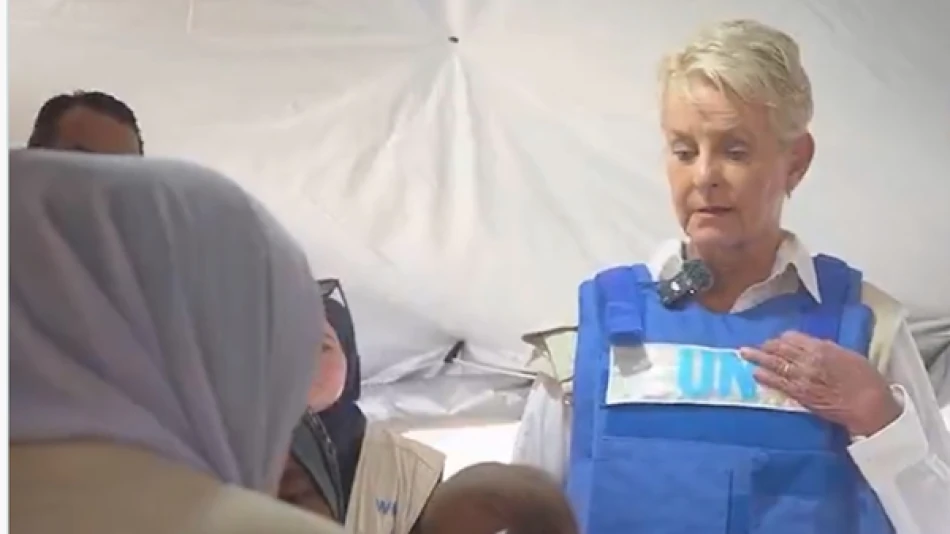
UN Food Agency Warns of Dire Situation in Gaza, Calls for Urgent Action
UN Food Chief Declares Gaza at "Brink of Total Collapse" as Famine Crisis Deepens
The head of the UN World Food Programme has issued a stark warning that Gaza has reached the "brink of total collapse," calling for urgent reactivation of food distribution networks to prevent widespread famine from engulfing the territory. The assessment comes after the UN formally declared famine conditions in Gaza on August 22, marking one of the most severe humanitarian crises in the region's recent history.
Firsthand Account of Humanitarian Catastrophe
Cindy McCain, director of the UN World Food Programme, delivered her sobering assessment following a direct visit to Gaza, where she witnessed the devastating impact of prolonged conflict on the civilian population. Her observations paint a picture of a humanitarian disaster reaching critical mass.
"I met starving children receiving treatment for severe malnutrition, and saw pictures of them when they were healthy. They are unrecognizable," McCain stated, describing scenes that underscore the rapid deterioration of living conditions in the enclave.
During her visit to Deir al-Balah in central Gaza, McCain inspected medical facilities treating malnourished children and met with displaced mothers who shared accounts of their daily struggles for survival. She also toured Khan Younis in the southern part of the territory, witnessing similar conditions across different areas.
Critical Infrastructure Breakdown
The WFP director emphasized the urgent need to restore the organization's extensive distribution network, which previously operated 200 food distribution points, communal kitchens, and bakeries throughout Gaza. This infrastructure represents the backbone of humanitarian assistance in the territory, serving a population of approximately 2.3 million people who have become increasingly dependent on international aid.
The collapse of this distribution system has created a cascading crisis where even available aid cannot reach those most in need. McCain stressed the importance of creating "appropriate conditions" that would allow humanitarian workers to assist the most vulnerable populations and save lives.
International Context and Implications
The formal declaration of famine in Gaza places the territory among a small number of regions worldwide currently experiencing this most severe classification of food insecurity. According to international standards, famine is declared when at least 20% of the population faces extreme food shortages, acute malnutrition rates exceed 30%, and death rates surpass two per 10,000 people daily.
This designation carries significant implications for international humanitarian law and may influence diplomatic efforts to address the crisis. Historical precedents show that famine declarations often serve as catalysts for increased international intervention and aid mobilization, though the effectiveness depends heavily on access and security conditions.
Broader Humanitarian Appeal
In her statement, McCain made a direct appeal for a ceasefire, acknowledging the suffering on multiple sides of the conflict. "What we need is a ceasefire. My heart goes with the mothers in Gaza, and also the mothers of Israeli hostages, whose children are currently dying of hunger. This is enough," she declared.
This approach reflects the WFP's mandate to address humanitarian needs regardless of political considerations, while recognizing that sustainable solutions require addressing the underlying conflict driving the crisis. The organization's position highlights how humanitarian agencies must navigate complex political dynamics while maintaining focus on immediate human needs.
The situation in Gaza represents a test case for international humanitarian response mechanisms and the ability of global institutions to address acute crises in active conflict zones. The outcome may influence future humanitarian interventions and the development of protocols for operating in similarly challenging environments.
Most Viewed News

 Layla Al Mansoori
Layla Al Mansoori






